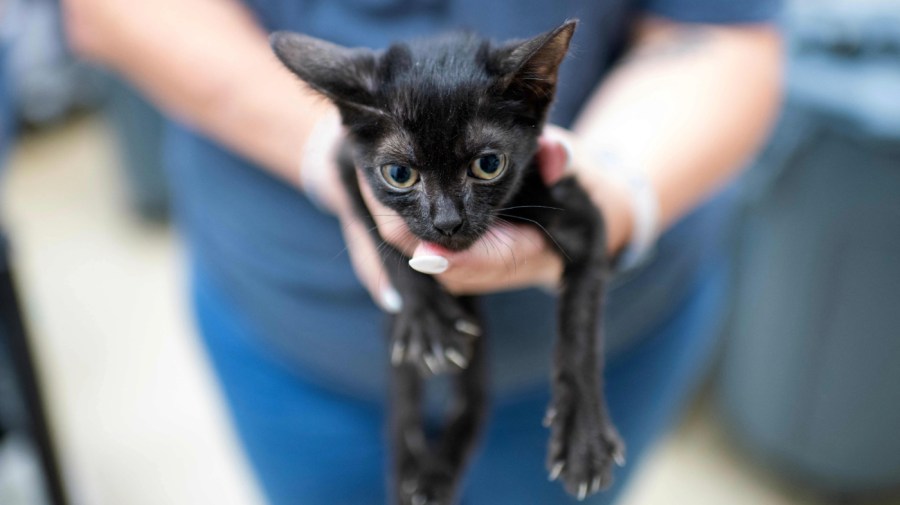
During his first term, President Donald Trump signed landmark legislation into law that established a new nationwide standard for animal abuse. The Preventing Animal Cruelty and Torture Act designated heinous acts of animal cruelty as federal crimes, punishing offenders with felony charges, fines, and up to seven years in prison.
As Trump navigates his second stint in the Oval Office, he has an opportunity to once again put the humane treatment of animals at the center of the national conversation. Opportunities are abundant.
First, the White House should direct federal government agencies to halt all unnecessary taxpayer-funded animal testing. The U.S. government is the single largest financier of the practice — with spending amounting to more than $20 billion annually.
While not all animal testing is inhumane, too many animals are subjected to painful experiments that are unnecessary. Not only are the animals kept in artificial environments that cause extreme stress and abnormal behaviors, but experts are increasingly acknowledging the unreliability and limitations of the practice.
Animals have significant biological differences that make predicting a drug’s impact on humans challenging. In fact, less than one in 10 drugs that use animal testing are deemed safe and effective for human use. It is clear from the available science that animal testing should no longer be the default for taxpayer-funded work.
Next, the Trump administration should leverage its executive power to improve the lives of farm animals by encouraging more agricultural businesses to seek out independent, science-based humane inspections of their facilities. One carrot the White House could use is to direct federal agencies to acquire humane-certified protein for their food supply chains. After all, the federal government spends billions of dollars a year on animal protein.
A second strategy would be to leverage the tax code. Trump’s signature tax cuts legislation is set to expire at the end of 2025 — and Republicans are chomping at the bit to pass legislation that would extend the measures. This provides an opening. At the direction of the White House, lawmakers should include a “humane tax credit” for farmers who follow through with a science-based certification program for animal welfare.
Another opportunity on Capitol Hill includes passing legislation that would allow Americans to use tax-advantaged health savings accounts to pay for pet insurance or veterinary care. The idea was proposed in the House of Representatives last year with bipartisan support.
Beyond U.S. borders, the Trump administration can leverage its economic might to export the humane treatment of animals internationally. Working to end the global cat and dog meat trade should be first on the agenda. Capturing and slaughtering these animals for human consumption is inhumane and unethical, but the atrocity still infects large parts of the world.
In Asia alone, millions of cats and dogs are killed and eaten each year. The annual Yulin Dog Meat Festival in China is a particularly bloodcurdling example. During a 10-day period, thousands of dogs are butchered and eaten, with some reports suggesting animals are tortured and boiled alive.
Trump should direct Secretary of State Marco Rubio to stamp out these atrocities as he travels the globe. The White House is already using its leverage to force concessions on trade, immigration and national defense in countries around the world. Bans on cat and dog meat could also become part of negotiations.
The Trump administration meaningfully advanced the humane movement in 2019 by increasing sentences for animal abusers. The White House now has an opportunity to build upon that legacy by continuing to pursue an aggressive policy agenda that further improves the welfare of animals, both within our borders and around the world.
Robin Ganzert, Ph.D. is the president and CEO of the American Humane Society, the country’s first national humane organization.












